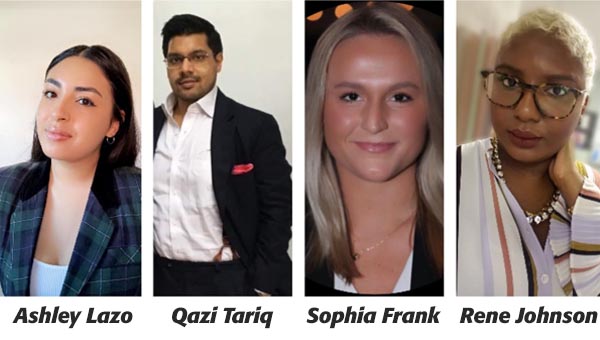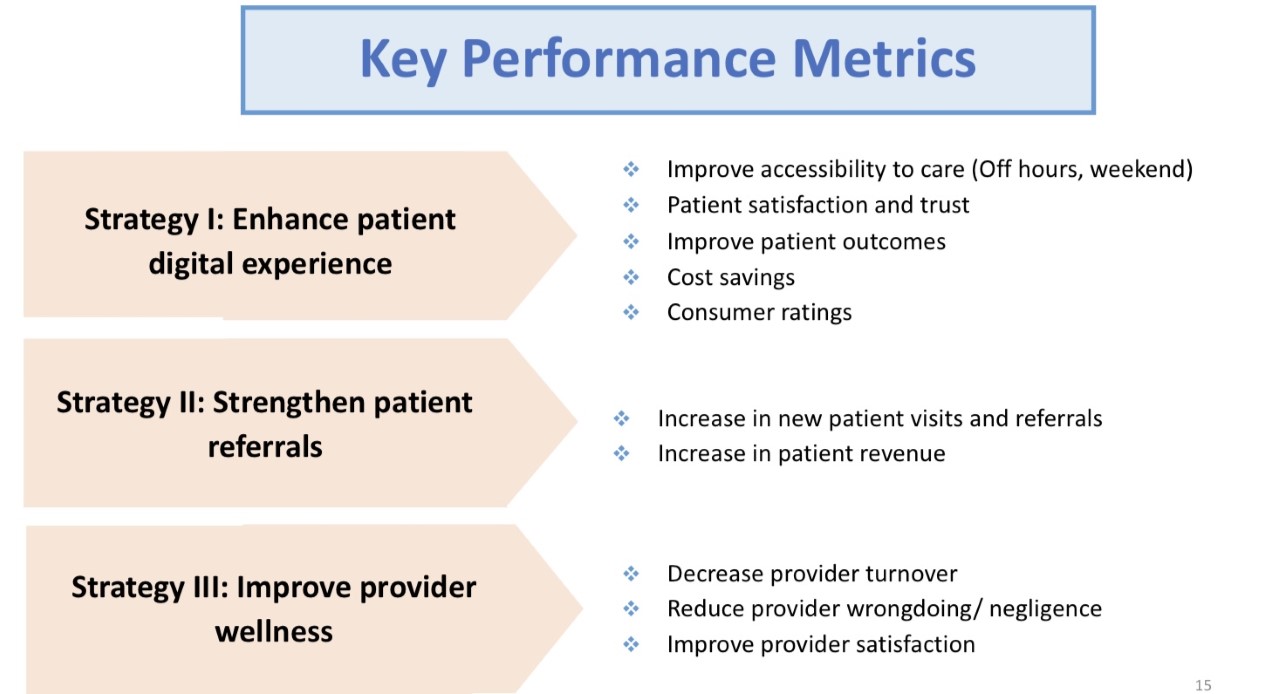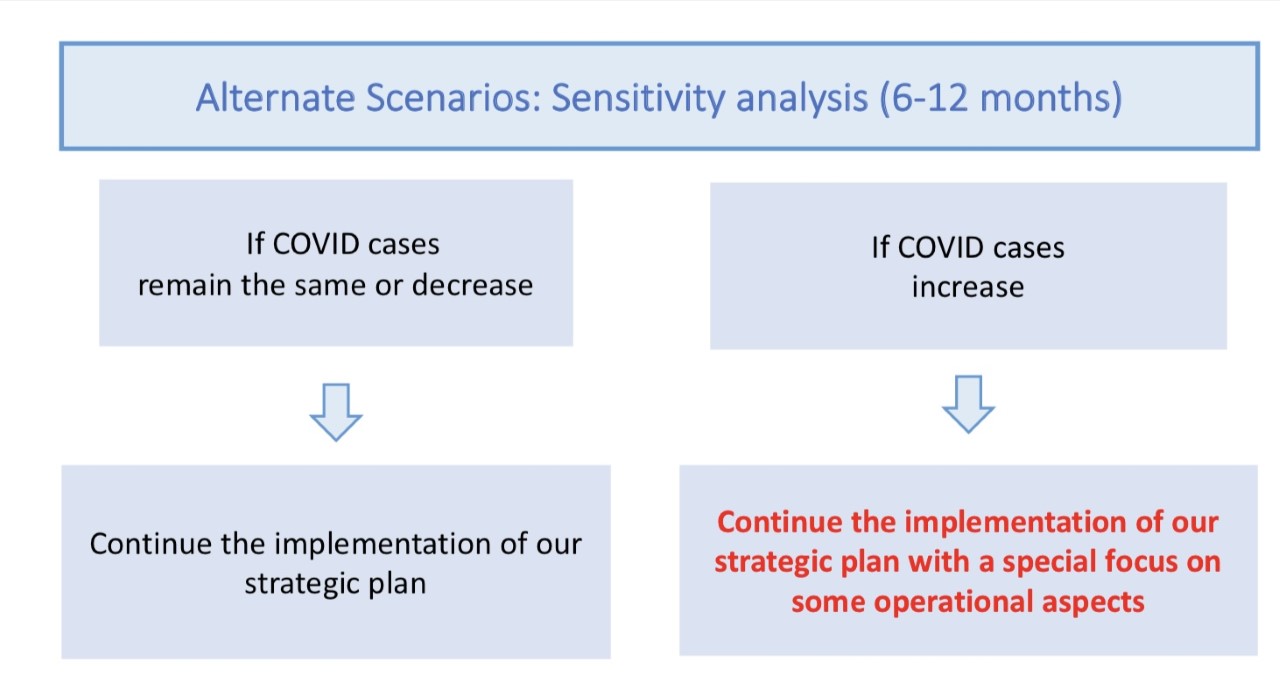The Bloustein School’s Master of Health Administration student team recently defended the school’s 2019 title by capturing first place at the 2020 Graduate Healthcare Management Case Study Challenge held the first week of November. Jointly organized by the Healthcare Planning and Marketing Society of New Jersey, Seton Hall University, and the Commission on Accreditation of Healthcare Management Education (CAHME), the competition provided health administration graduate students from the New Jersey, New York, and Pennsylvania region the opportunity to present innovative solutions to a healthcare case.
“Case competitions are excellent learning opportunities for students. As a relatively new program, a repeat performance at this year’s competition enhances both the quality and reputation of the Rutgers MHA program,” said Ray Caprio, Ph.D., University Professor and Director of the Bloustein School Master of Health Administration program. “We also appreciate our colleagues at Seton Hall, CAHME, and the Healthcare Planning and Marketing Society of New Jersey for again organizing this event and despite this year’s challenges, the virtual event was a great success.”

The Rutgers MHA team, which competed against programs from the region including nationally-ranked Columbia University, the University of Pittsburgh and Penn State University, included Sophia Frank, Rene Johnson, Ashley Lazo, and Qazi Tariq. Bloustein School assistant professor Soumitra Bhuyan, Ph.D., served as team adviser.
“The Rutgers MHA program puts a lot of emphasis on our student’s professional growth and in their ability to solve real-world problems. We have a strong faculty with years of experience in healthcare management theory and practice and are committed to training the next generation of critical thinkers in solving some of the biggest challenges of the healthcare industry today,” said Dr. Bhuyan.
This year’s case study focused on COVID’s effects on the healthcare industry. Students were tasked with providing recommendations on how a fictional healthcare system should adapt to this unprecedented time. The Bloustein School’s recommendation included a focus on the potential of technology in healthcare services, the role of ambulatory care, and the importance of staff wellness as well as a comprehensive plan for marketing and collaboration with public health departments.

“The competition was challenging, but it really pushed us to think about every detail and take everything into account,” said Ashley Lazo. “I started my career in an affordable housing nonprofit organization that was very focused on the idea of a “culture of health” and the effects of social determinants of health, and we framed our housing programs within that context. We partnered with many healthcare organizations, which made me realize that healthcare is the foundation on which you can provide a better quality of life for vulnerable communities.”
Qazi Tariq was responsible for delivering the strategy part of the case. “It was very challenging considering that we were asked to mitigate the damage set forth by COVID without knowing enough about the disease itself or its long-term complications. This made it difficult to come up with a plan to not only help the healthcare organization but also patients,” he said. “To make do with the current economic situation, and to also have contingency plans in place to address the loss in revenue this year and target the potential financial setbacks in the years to come—without even knowing about the disease fully—was quite a challenge.”

Since every team was thinking along the same lines when it came to practical strategic responses, the Rutgers MHA team knew they had to find a way to not only be practical but to set themselves apart without straying from the topic or the objectives they needed to consider. This meant intense research to come up with cutting edge, yet simple techniques that would help bring the patient to the hospital by addressing their safety concerns and appealing to them as prospective patients.
“What set us apart, and what helped us win, was our presentation skills,” said Qazi. “The way we delivered our message. We were confident in our strategic planning. This was because the group members had transparency and clarity with not only the overall goals but also amongst ourselves. We had a good rapport which really helped us streamline our deliverables.”
Both Ashley and Qazi were extremely grateful for the assistance provided by the team’s coach and mentor Dr. Soumitra Bhuyan. “Dr. Bhuyan believed in us and guided us throughout the process,” said Qazi.
“This really was an unforgettable experience. It was a real testament to the complexity of real-world issues that affect the healthcare industry—no solution is simple,” said Ashley. “I came to the Bloustein School based on my experience at my previous position. My supervisor—a Bloustein alum—became a mentor and inspired me to look up Rutgers’ MHA program. Dr. Bhuyan further encouraged me to take part in the competition and was incredible at really pushing the team to think outside the box and to go the extra mile.”
Dr. Bhuyan added, “This team put a lot of night and weekend hours preparing for the case challenge and the MHA faculty are very pleased with the outcome. This is remarkable for a young program like ours. But participating in these case challenges is a great learning opportunity for our students and we are looking forward to next year.”
The Case Study Challenge attracted 12 teams. The final results were:
- First Place- Rutgers University
- Second Place- Penn State University
- Third Place- University of Pittsburgh
- Honorable Mention- Hofstra University
For more information about the Rutgers Master of Health Administration at the Bloustein School, visit mha.rutgers.edu.
